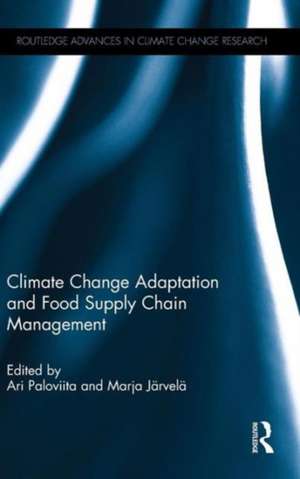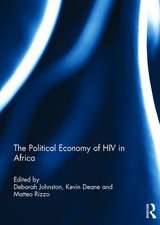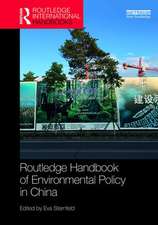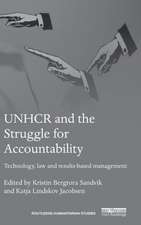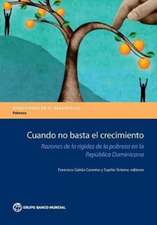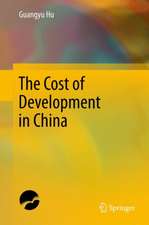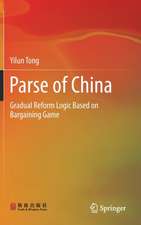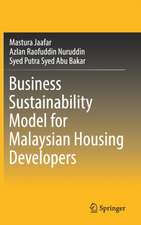Climate Change Adaptation and Food Supply Chain Management: Routledge Advances in Climate Change Research
Editat de Ari Paloviita, Marja Järveläen Limba Engleză Hardback – 24 aug 2015
The success of the entire food supply chain depends on the prosperity of farms and local communities. The direct climate change risks faced by the agricultural sector are therefore also risks to businesses and food supply chains. Hence the importance of resilience at farm level, community level and business level when looking at food supply chain policy and management.
Climate Change Adaptation and Food Supply Chain Management highlights the issue of adaptation to climate change in food supply chains, the management and policy implications and the importance of supply chain resilience. Attention is given to each phase of the supply chain: input production, agriculture, food processing, retailing, consumption and post-consumption. European case studies demonstrate the vulnerabilities of contemporary food supply chains, the opportunities and competitive advantages related to climate change, and the trans-disciplinary challenges related to successful climate adaptation. The authors argue for a redefinition of the way food supply chains are operated, located and coordinated and propose a novel approach enhancing climate-resilient food supply chain policy and management.
This book will be of interest to students, researchers, practitioners and policymakers in the field of climate adaptation and food supply chain management and policy.
| Toate formatele și edițiile | Preț | Express |
|---|---|---|
| Paperback (1) | 449.41 lei 6-8 săpt. | |
| Taylor & Francis – 25 mai 2017 | 449.41 lei 6-8 săpt. | |
| Hardback (1) | 1054.71 lei 6-8 săpt. | |
| Taylor & Francis – 24 aug 2015 | 1054.71 lei 6-8 săpt. |
Din seria Routledge Advances in Climate Change Research
-
 Preț: 152.55 lei
Preț: 152.55 lei -
 Preț: 311.14 lei
Preț: 311.14 lei -
 Preț: 280.92 lei
Preț: 280.92 lei - 8%
 Preț: 376.64 lei
Preț: 376.64 lei -
 Preț: 310.75 lei
Preț: 310.75 lei -
 Preț: 207.00 lei
Preț: 207.00 lei -
 Preț: 309.87 lei
Preț: 309.87 lei -
 Preț: 320.22 lei
Preț: 320.22 lei -
 Preț: 312.54 lei
Preț: 312.54 lei -
 Preț: 310.14 lei
Preț: 310.14 lei - 8%
 Preț: 390.79 lei
Preț: 390.79 lei -
 Preț: 287.02 lei
Preț: 287.02 lei -
 Preț: 296.73 lei
Preț: 296.73 lei -
 Preț: 482.62 lei
Preț: 482.62 lei -
 Preț: 406.42 lei
Preț: 406.42 lei -
 Preț: 478.77 lei
Preț: 478.77 lei - 18%
 Preț: 1000.27 lei
Preț: 1000.27 lei -
 Preț: 449.41 lei
Preț: 449.41 lei -
 Preț: 449.41 lei
Preț: 449.41 lei - 12%
 Preț: 325.34 lei
Preț: 325.34 lei - 18%
 Preț: 1172.58 lei
Preț: 1172.58 lei - 18%
 Preț: 1001.84 lei
Preț: 1001.84 lei - 18%
 Preț: 1074.44 lei
Preț: 1074.44 lei -
 Preț: 408.16 lei
Preț: 408.16 lei -
 Preț: 449.41 lei
Preț: 449.41 lei - 31%
 Preț: 762.58 lei
Preț: 762.58 lei -
 Preț: 408.74 lei
Preț: 408.74 lei -
 Preț: 299.52 lei
Preț: 299.52 lei - 18%
 Preț: 701.56 lei
Preț: 701.56 lei - 28%
 Preț: 820.32 lei
Preț: 820.32 lei - 18%
 Preț: 1057.09 lei
Preț: 1057.09 lei - 18%
 Preț: 1055.51 lei
Preț: 1055.51 lei - 18%
 Preț: 1053.92 lei
Preț: 1053.92 lei -
 Preț: 416.22 lei
Preț: 416.22 lei - 18%
 Preț: 1053.16 lei
Preț: 1053.16 lei - 30%
 Preț: 847.73 lei
Preț: 847.73 lei - 25%
 Preț: 851.82 lei
Preț: 851.82 lei -
 Preț: 413.94 lei
Preț: 413.94 lei - 18%
 Preț: 1000.27 lei
Preț: 1000.27 lei - 18%
 Preț: 1226.79 lei
Preț: 1226.79 lei -
 Preț: 449.41 lei
Preț: 449.41 lei - 18%
 Preț: 1062.16 lei
Preț: 1062.16 lei - 26%
 Preț: 764.20 lei
Preț: 764.20 lei
Preț: 1054.71 lei
Preț vechi: 1286.24 lei
-18% Nou
201.81€ • 210.71$ • 167.03£
Carte tipărită la comandă
Livrare economică 04-18 aprilie
Specificații
ISBN-10: 1138796662
Pagini: 230
Ilustrații: 14 black & white illustrations, 11 black & white tables, 3 black & white line drawings
Dimensiuni: 156 x 234 x 14 mm
Greutate: 0.45 kg
Ediția:1
Editura: Taylor & Francis
Colecția Routledge
Seria Routledge Advances in Climate Change Research
Locul publicării:Oxford, United Kingdom
Public țintă
PostgraduateCuprins
Descriere
The success of the entire food supply chain depends on the prosperity of farms and local communities. The direct climate change risks faced by the agricultural sector are therefore also risks to businesses and food supply chains. Hence the importance of resilience at farm level, community level and business level when looking at food supply chain policy and management.
Climate Change Adaptation and Food Supply Chain Management highlights the issue of adaptation to climate change in food supply chains, the management and policy implications and the importance of supply chain resilience. Attention is given to each phase of the supply chain: input production, agriculture, food processing, retailing, consumption and post-consumption. European case studies demonstrate the vulnerabilities of contemporary food supply chains, the opportunities and competitive advantages related to climate change, and the trans-disciplinary challenges related to successful climate adaptation. The authors argue for a redefinition of the way food supply chains are operated, located and coordinated and propose a novel approach enhancing climate-resilient food supply chain policy and management.
This book will be of interest to students, researchers, practitioners and policymakers in the field of climate adaptation and food supply chain management and policy.
